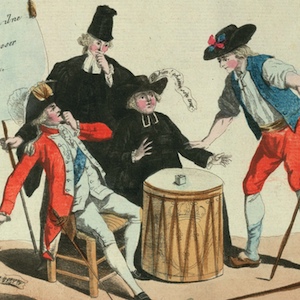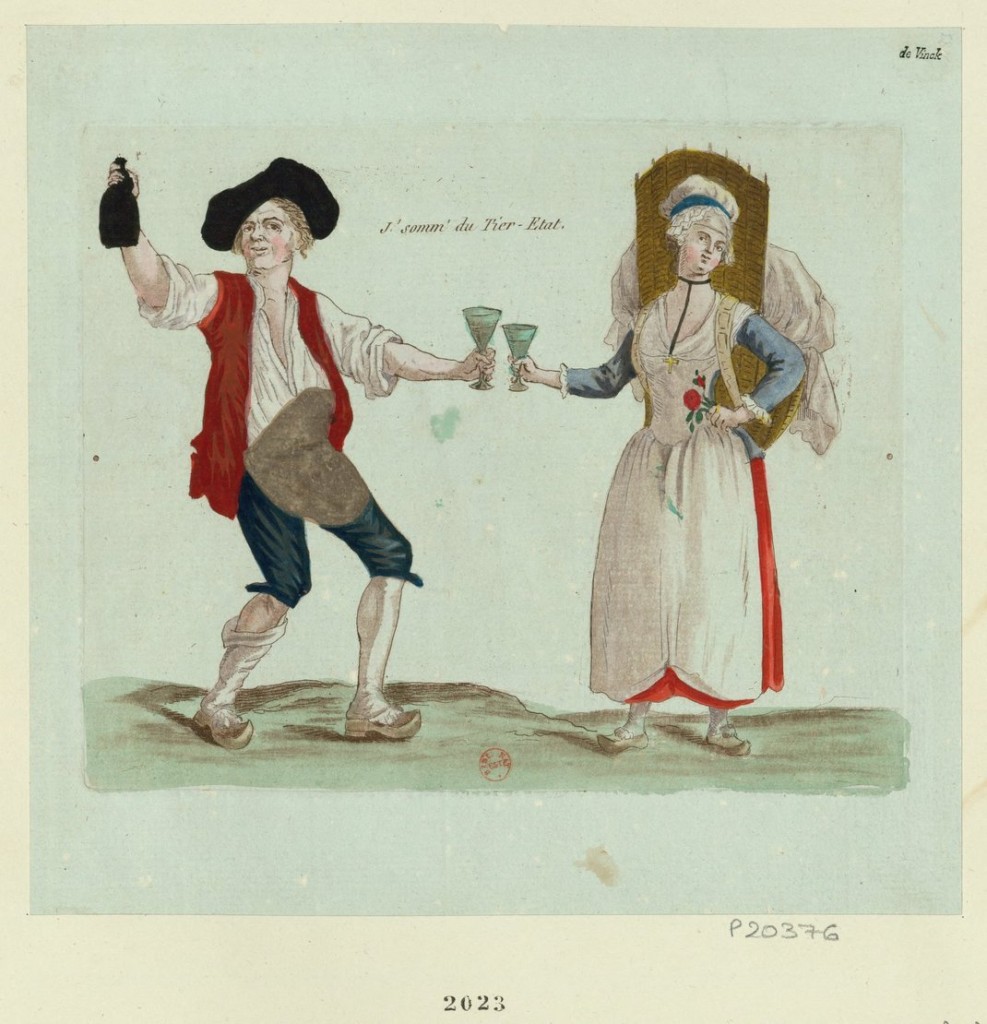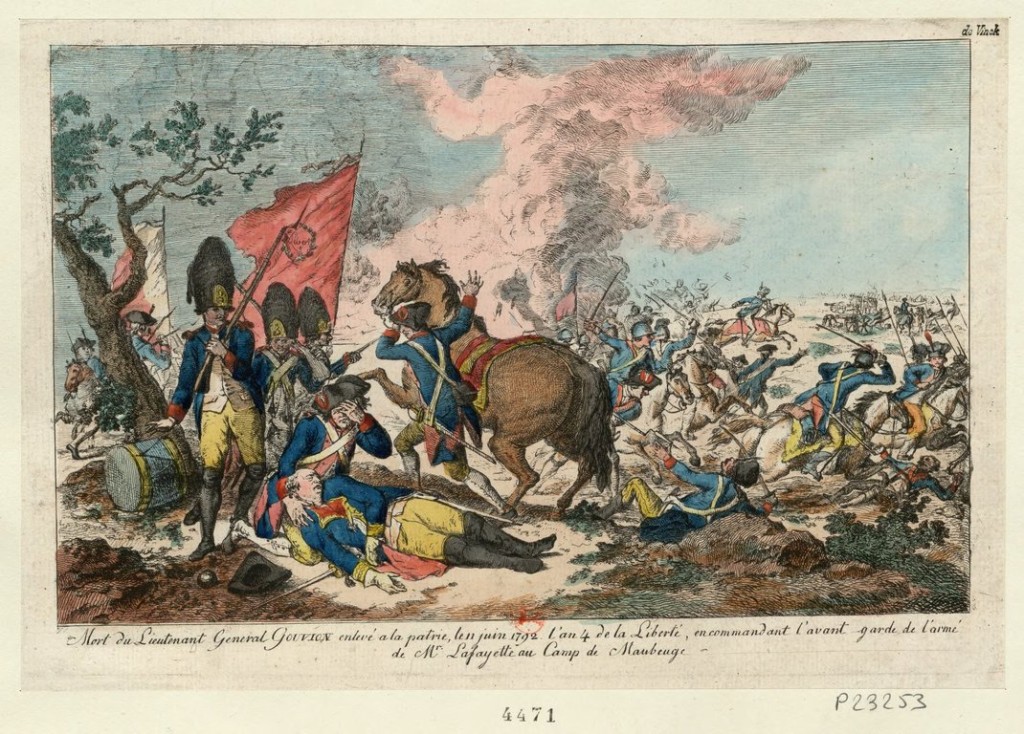Way back in 2006, Prof. Dan Edelstein was having dinner with Michel Serres and Sarah Sussman, curator of the French and Italian collections at Stanford Libraries. The prominent French intellectual and member of the Académie française had just given a talk that mentioned digitalization, and so the topic came up later over wine. Said Dan, “I was working on my book on The Terror, and mentioned how incredibly useful it would be to have the minutes of French revolutionary parliamentary debates – in French known as the Archives parlementaires – available in full-text, searchable form.” Together, the three fantasized about bringing online the stunning collection of images that the Bibliothèque Nationale de France (BnF) had compiled in 1989 – at that point, the images were gathering dust on useless laser disks.
 Voilà! By dessert, they had decided to pitch a proposal to the BnF. Michel Serres, who served on the BnF board, would deliver it when he returned to Paris. A month or so later, they got an enthusiastic reply from the then-director of the library, Agnès Saal, and the collaboration with Stanford took off. (She went on to become the director of the Pompidou Museum, and the project was subsequently adopted by the current president, Bruno Racine). It’s featured on the pages of the Smithsonian, here.
Voilà! By dessert, they had decided to pitch a proposal to the BnF. Michel Serres, who served on the BnF board, would deliver it when he returned to Paris. A month or so later, they got an enthusiastic reply from the then-director of the library, Agnès Saal, and the collaboration with Stanford took off. (She went on to become the director of the Pompidou Museum, and the project was subsequently adopted by the current president, Bruno Racine). It’s featured on the pages of the Smithsonian, here.
To understand what this resource represents, it helps to realize that the Archives parlementaires is a multi-volume collection (102 and counting) of primary source documents, mostly newspapers and official publications, that provide blow-by-blow accounts of the debates that took place in the National Assembly, and then, from September 1792 onward, the National Convention. “They make for gripping reading: not only do you have access to the speeches themselves, but also the shouted interruptions from other deputies, and even a general sense of how the assembly was reacting – applaudissements, murmures, bruits,” said Dan. (The Russian Revolution had its own equivalent – we wrote about it here.)
 One problem: the Archives parlementaires is a rather difficult source to use. Who can read it from start to finish to find a passage of interest? “If you’re interested in a particular theme, problem, or law, there’s no obvious way to find all the relevant debates within the hundred and two volumes. So this is why I was so eager to have a digitized version,” said Dan. “Instead of fishing around, somewhat blindly, for interesting passages, keyword searches allow you to jump right in wherever the topic you’re interested in might be addressed. It also enables more sophisticated text mining: for instance, counting the number of times certain names or words are used in different periods; or even, identifying all of the times when deputies cite a passage from Rousseau’s Social Contract.”
One problem: the Archives parlementaires is a rather difficult source to use. Who can read it from start to finish to find a passage of interest? “If you’re interested in a particular theme, problem, or law, there’s no obvious way to find all the relevant debates within the hundred and two volumes. So this is why I was so eager to have a digitized version,” said Dan. “Instead of fishing around, somewhat blindly, for interesting passages, keyword searches allow you to jump right in wherever the topic you’re interested in might be addressed. It also enables more sophisticated text mining: for instance, counting the number of times certain names or words are used in different periods; or even, identifying all of the times when deputies cite a passage from Rousseau’s Social Contract.”
And what of us who are unlikely to think of the Archives parlementaires at all? Dan says all of us “will probably be even more blown away by the amazing work that the BnF did re-digitizing over 14,000 images dating from the time of the French Revolution. These images bring back the baroque and often pornographic flavor of political culture at the end of the 18th century. They reveal the hatreds, hopes, fears, anxieties, and fantasies of French men and women during this ‘heady’ time – no pun intended. Because the BnF marked up the images with a remarkable degree of metadata, it’s fairly easy to find images relating to any individual, revolutionary moment, theme, or place might be interested and, simply by entering a search term.”
So go for it. The French Revolutionary Digital Archive is here.
(All images from the French Revolutionary Digital Archives.)
Tags: Agnès Saal, Bruno Racine, Dan Edelstein, Michel Serres, Sarah Sussman



March 2nd, 2014 at 2:45 pm
Thanks! I’m taking a course on the French Revolution this summer so this will come in handy.
March 2nd, 2014 at 2:59 pm
You should have some pretty cool artwork to go with your homework, Dwight.